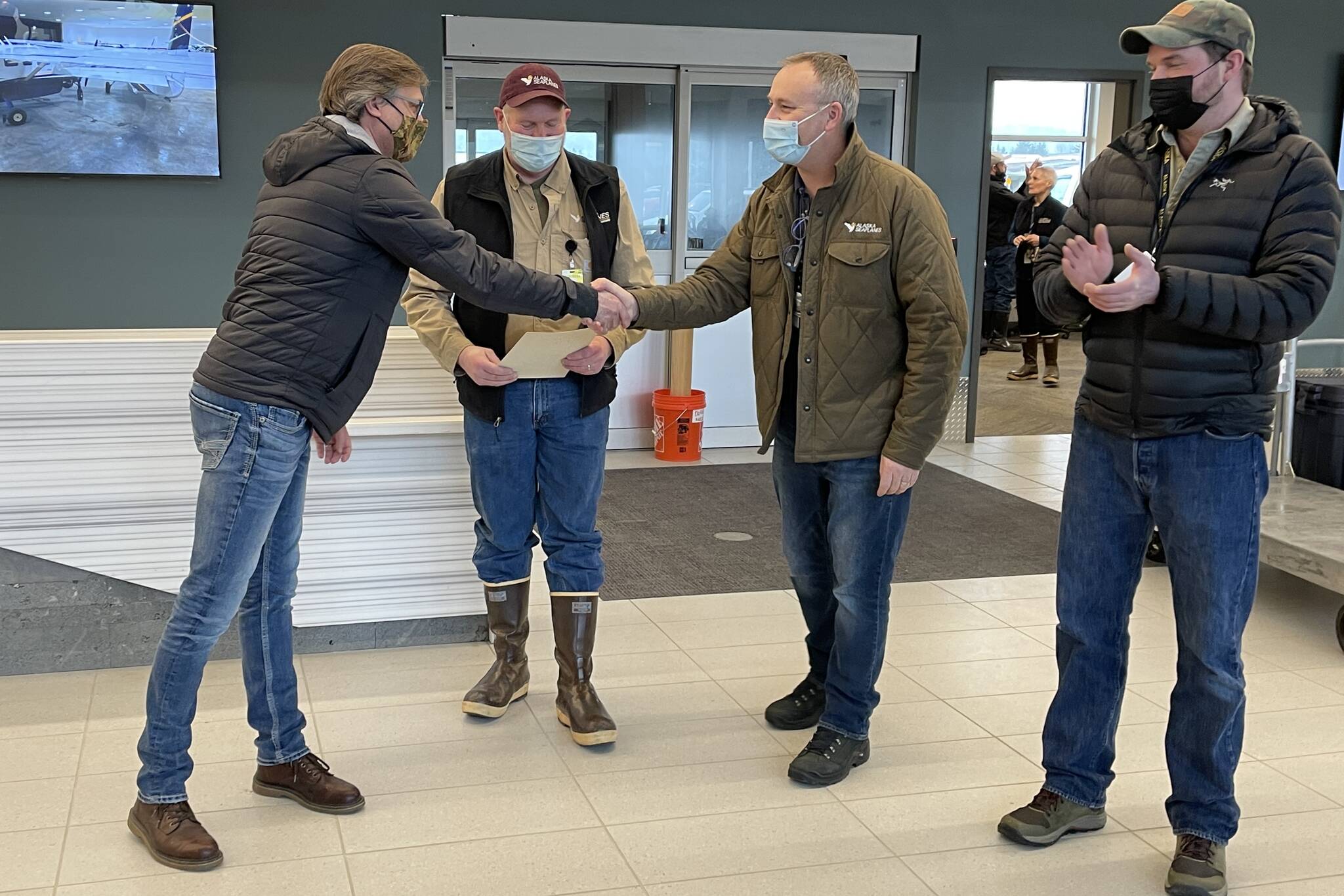Alaska Seaplanes formally joined the Safety Management System volunteer program in a small ceremony at Juneau International Airport on Tuesday afternoon.
The acceptance to the Federal Aviation Administration program comes after a long-time effort to get certified, said Seaplanes co-owner Kent Craford.
“This is the culmination of something that start two and a half years ago,” Craford said during the ceremony. “This is no finish line. This is just that we qualified for the starting line. Now, we have to run the race.”
[Body found Friday ID’d as missing man]
The SMS program is a systemic way of looking at aviation safety, said Seaplanes marketing manager Andy Kline in an email. It means a new way of operating for Seaplanes, and one that won’t make things easier for maintainers and operators, but will increase safety aboard all Seaplanes aircraft, Kline said.
“Probably the biggest change is how we look for hazards in our operations — we’ve always been safety minded, but this system puts a higher priority on proactively anticipating safety concerns — so now we are analyzing any new or changed policy, procedure or piece of equipment for hazards and working through a plan for how those hazards will be either eliminated or mitigated so the risk will be as low as possible,” Kline said. “Also, we have a non-punitive reporting policy – so everyone is empowered to speak up about any concern they might have, or even to report anything that just doesn’t quite look right or may cause a safety issue.”
Passengers won’t see much difference, Kline said, as it’s primarily behind-the-scenes; making sure the aircraft are maintained and operated safely and accountably.
“We had to accomplish a lot of steps to get this recognition from the FAA, but really the timeline is ongoing and growing,” Kline said. “Small operator safety in Alaska has matured tremendously in the last 30 years — from a time when there was only a two-way radio in the cockpit, to now flying on instruments and real-time tracking, so the safety environment is always evolving and growing.”
While larger airlines are required to participate in the SMS program, Kline said, Seaplanes is now one of only a few dozen smaller operators to earn the certification, said Brad Sapp, the operations supervisor for Juneau flight standards, part of the FAA.
“There’s a lot of overhead and employee time needed to implement this program effectively, so it can be tough for smaller operators to have the resources needed to get this recognition,” Kline said. “It’s voluntary, so not a mandatory step for smaller operators, but for us it was just the obvious next step in our growth, and while it has required and continues to require a lot of resources, it is a measure that we think is an essential part of our commitment to quality service for our passengers.”
Craford said he hoped that with Seaplanes’ entry into the program, more small operators would be inspired to take the necessary steps, making it safer to fly.
“Our motto is ‘flying at a higher standard’ and in the air industry that clearly means safety first and foremost,” Kline said. “In the most basic way this protects our customers and employees, which makes good business sense and is the right thing to do.”
• Contact reporter Michael S. Lockett at 757-621-1197 or mlockett@juneauempire.com.

